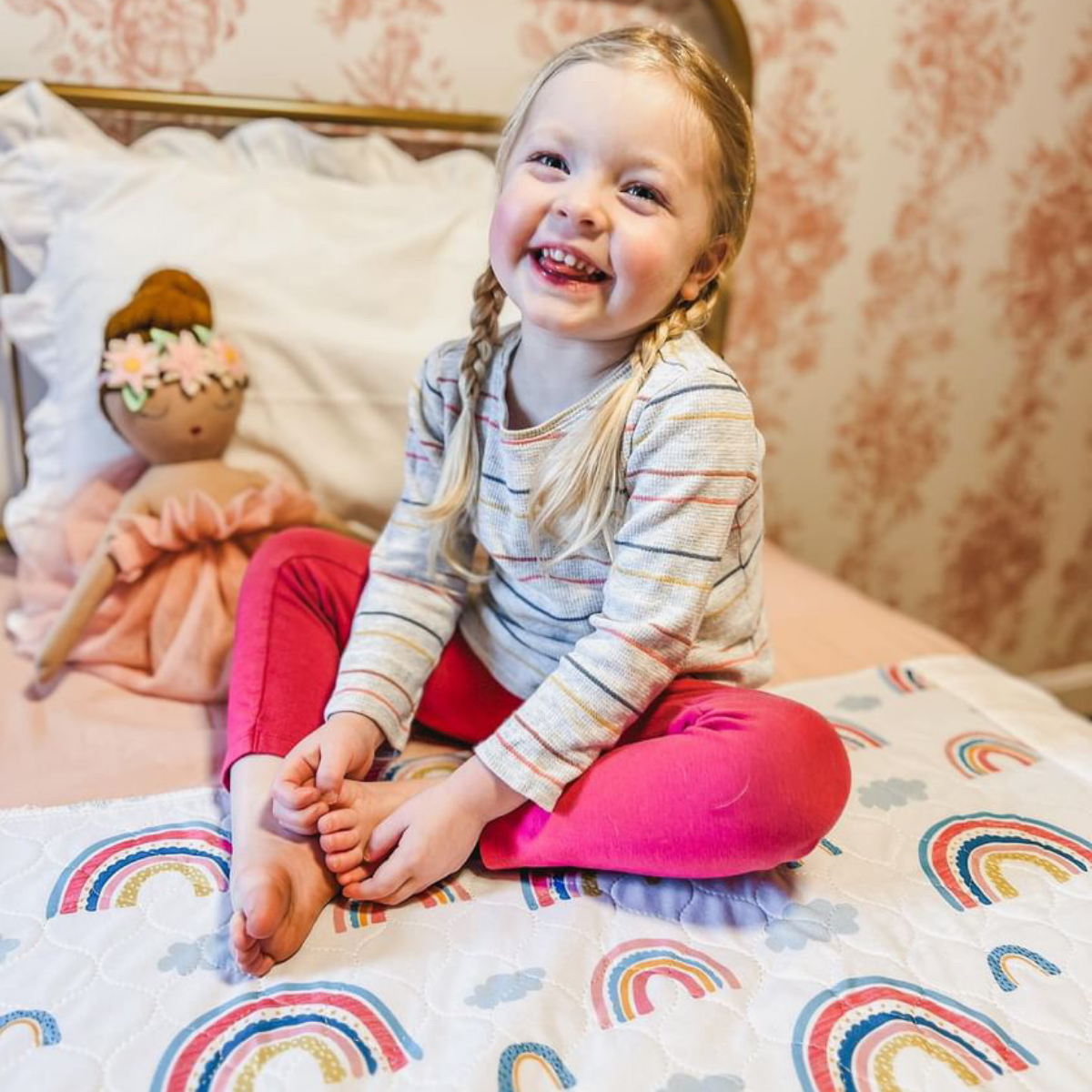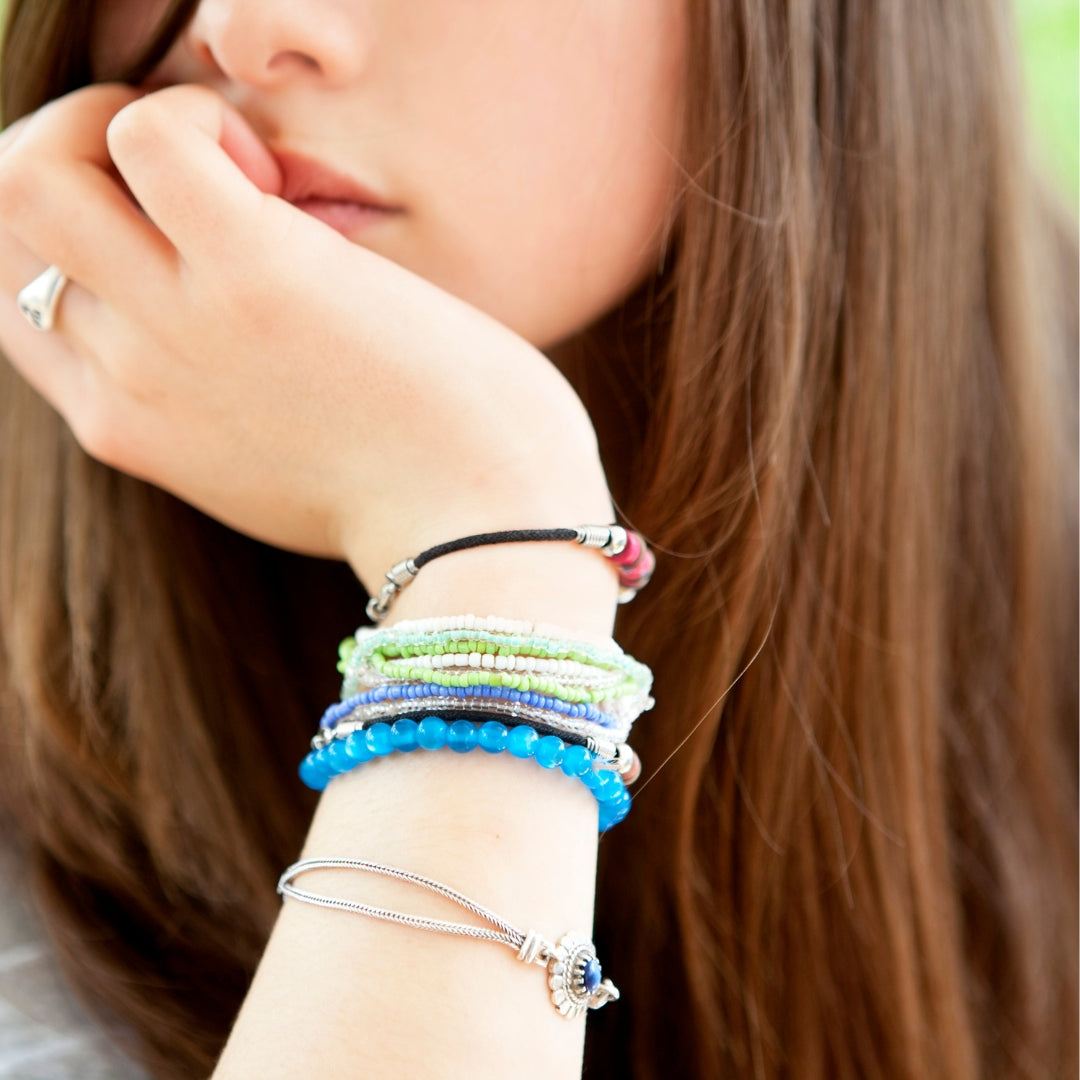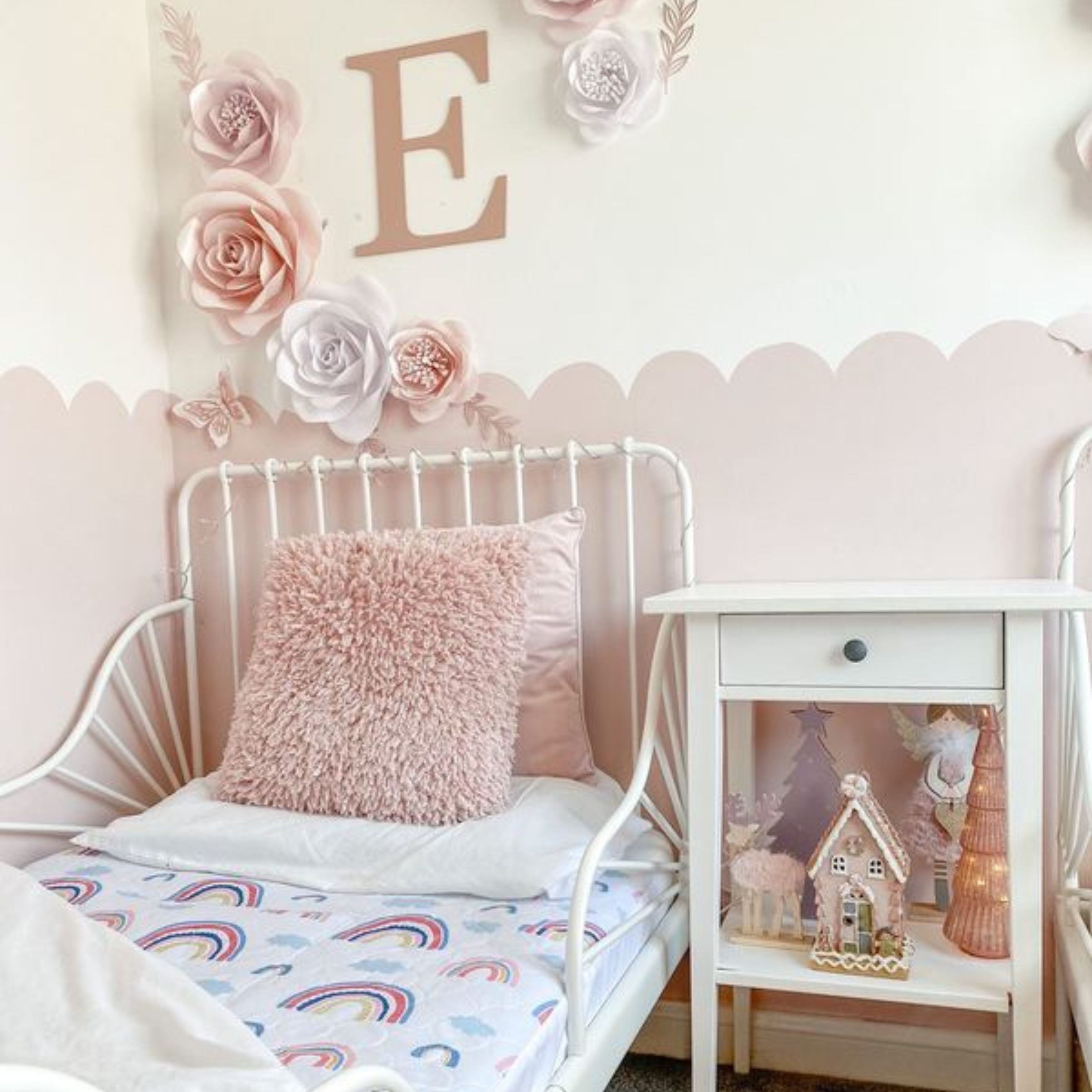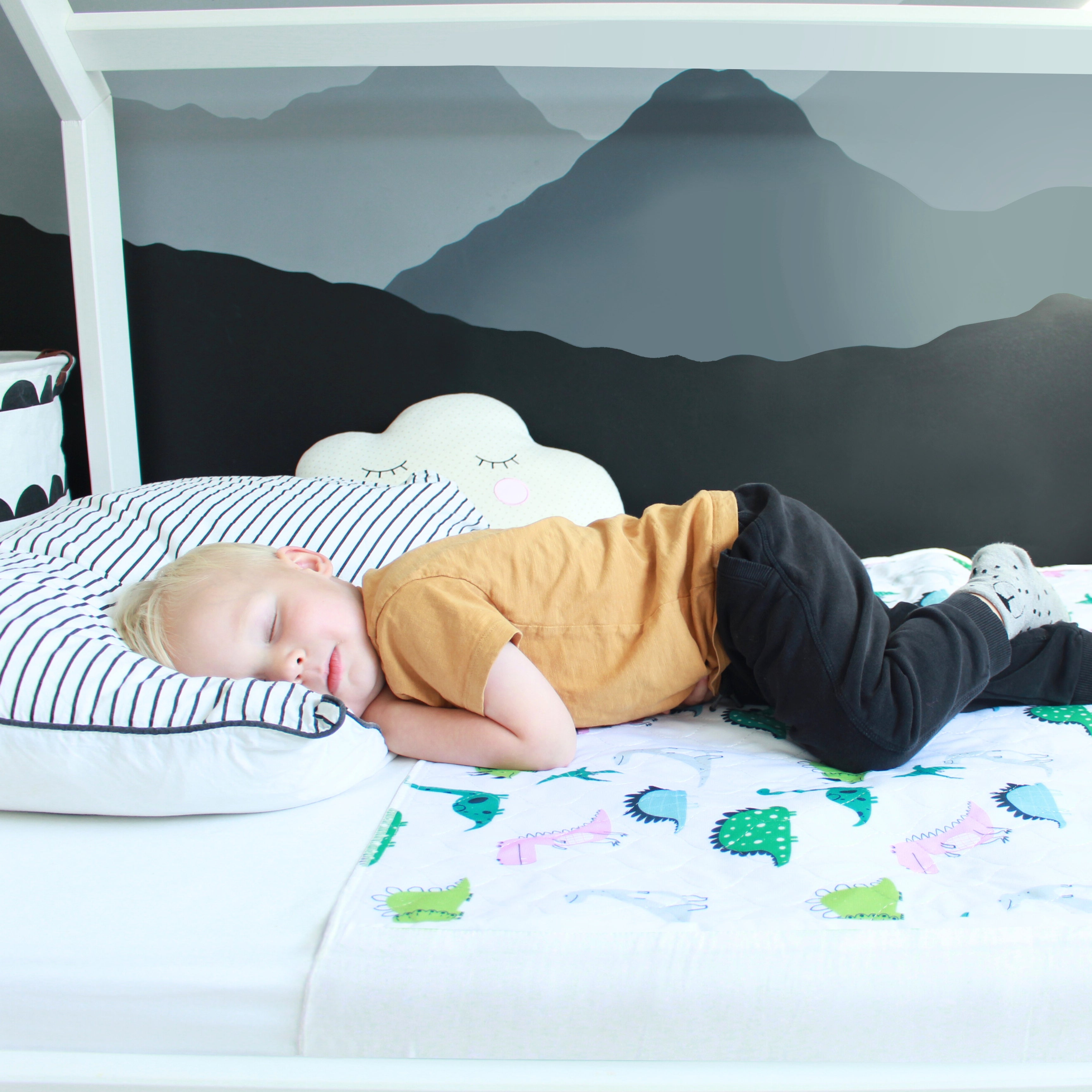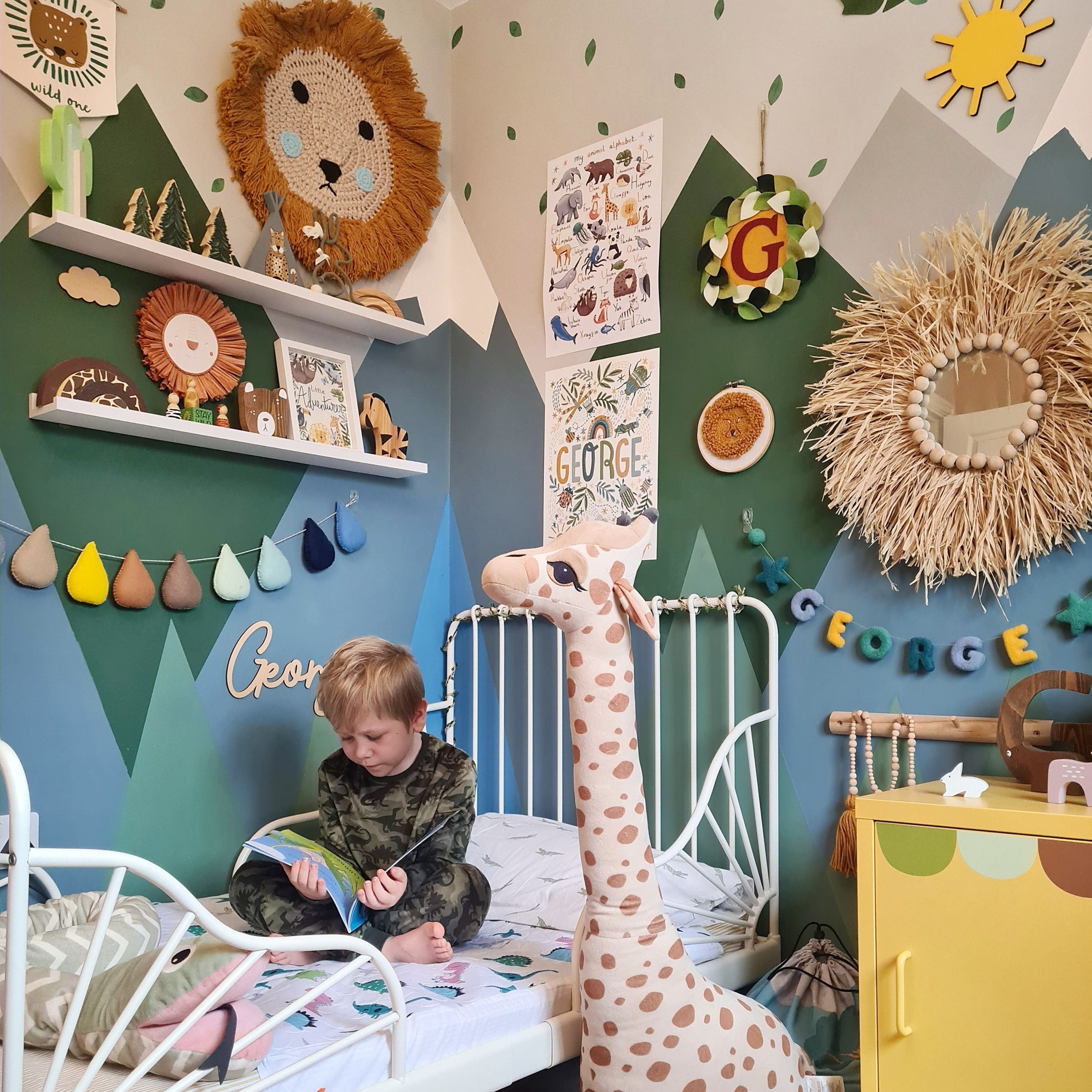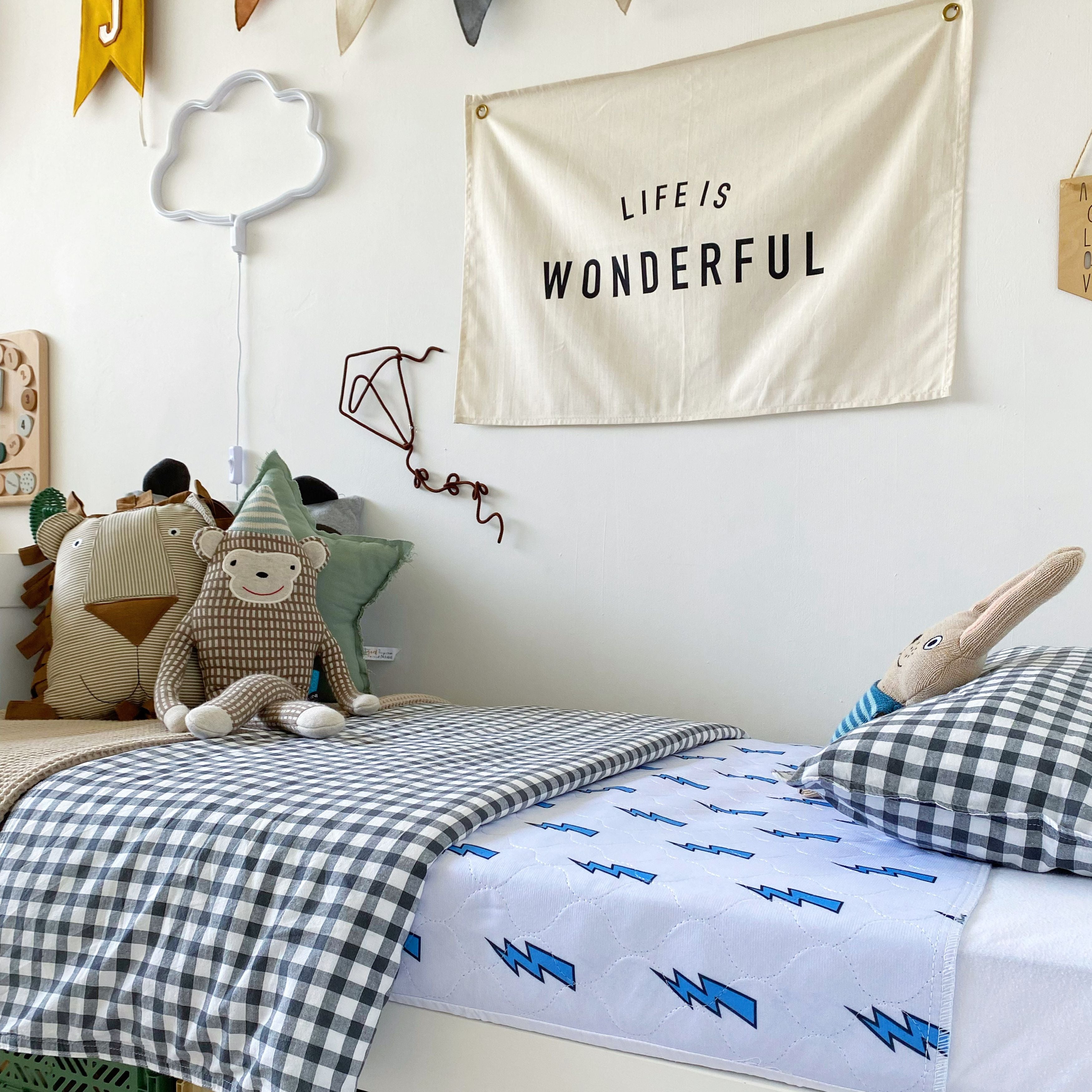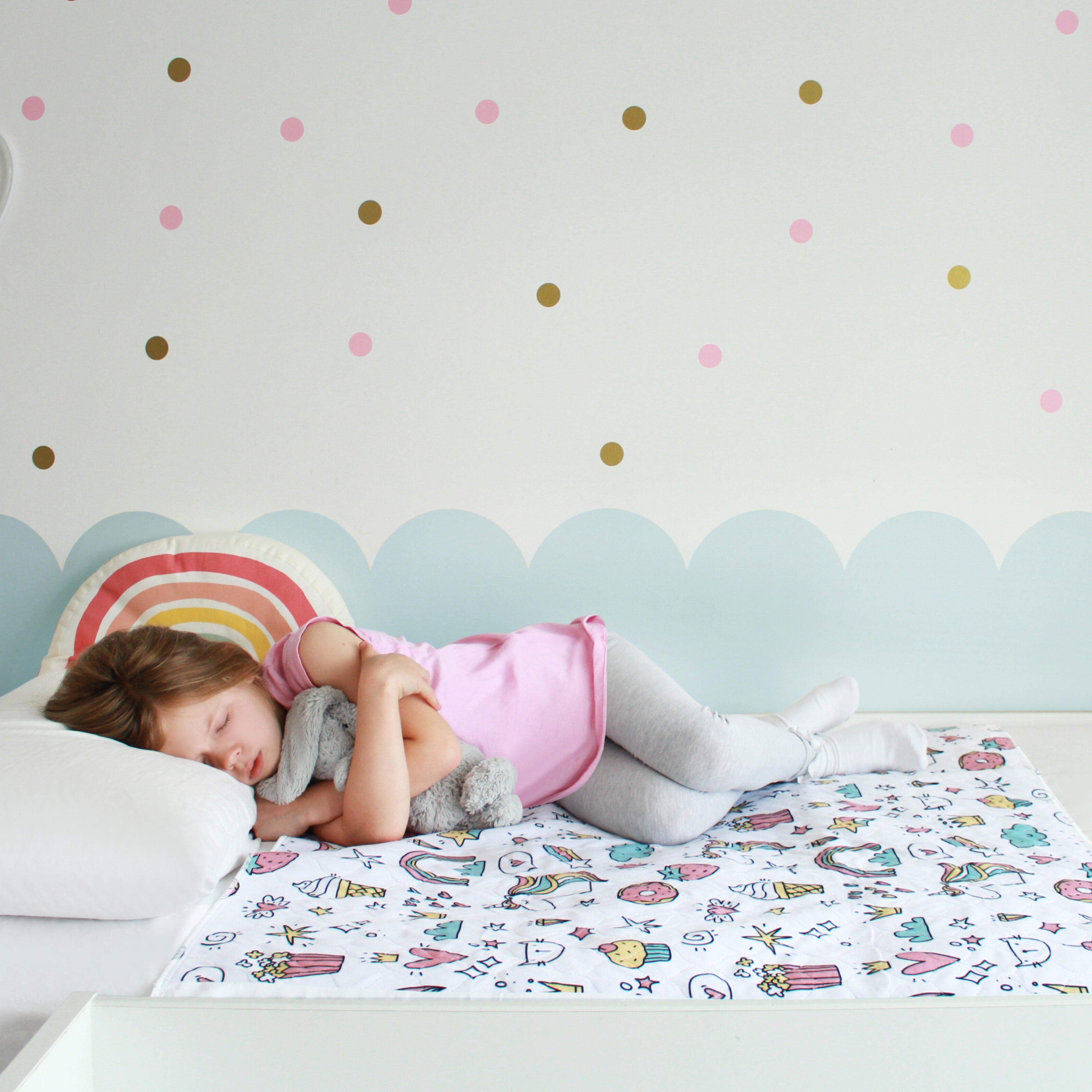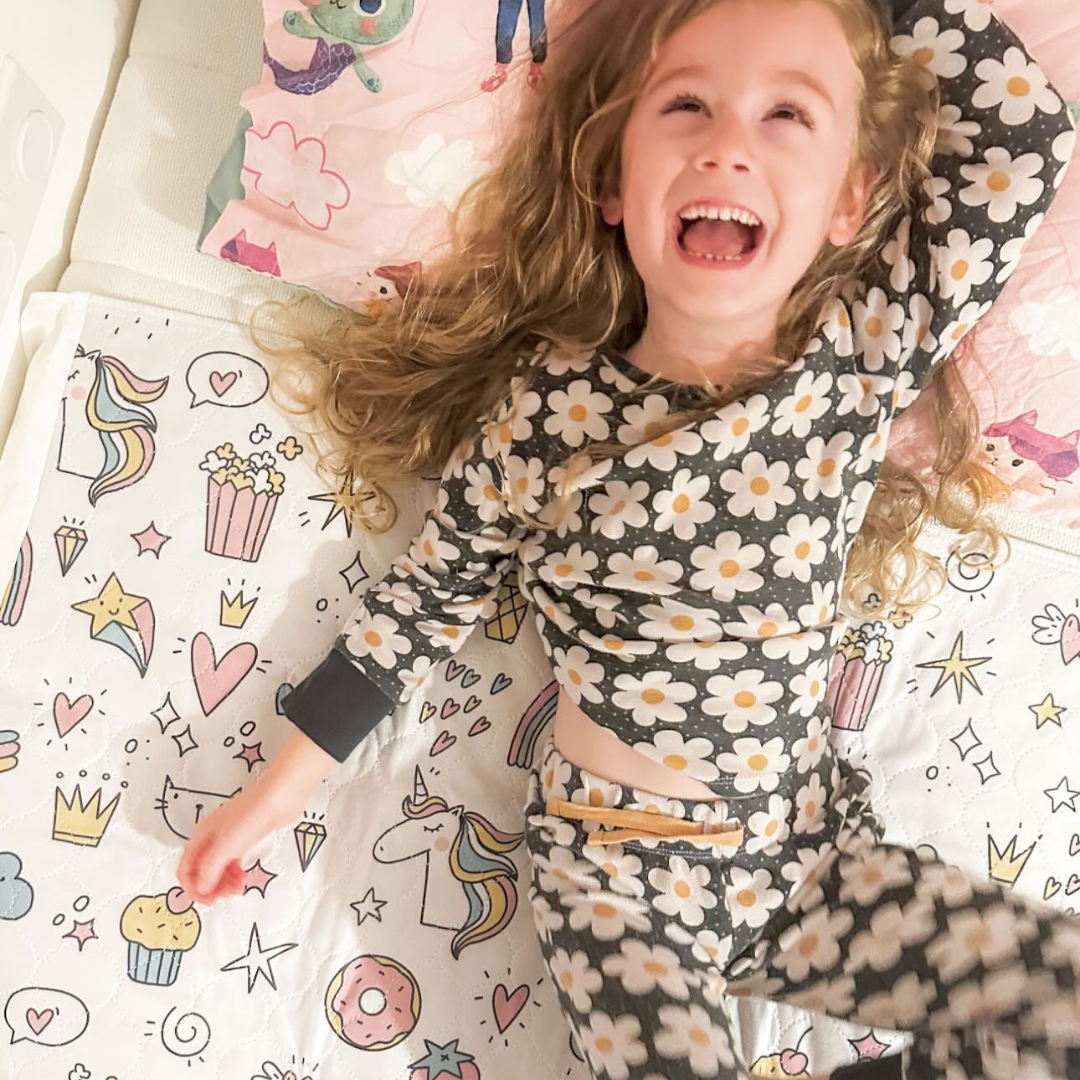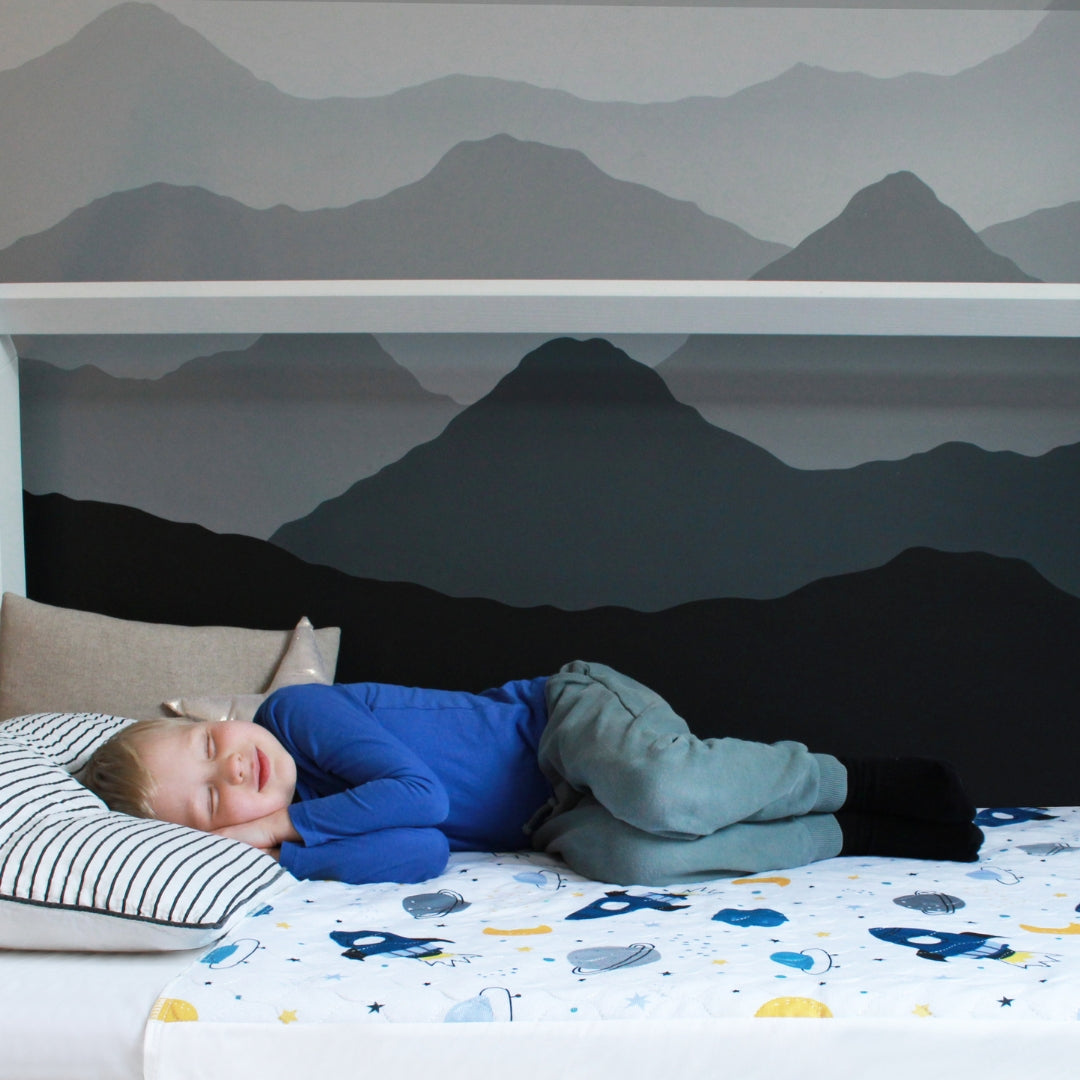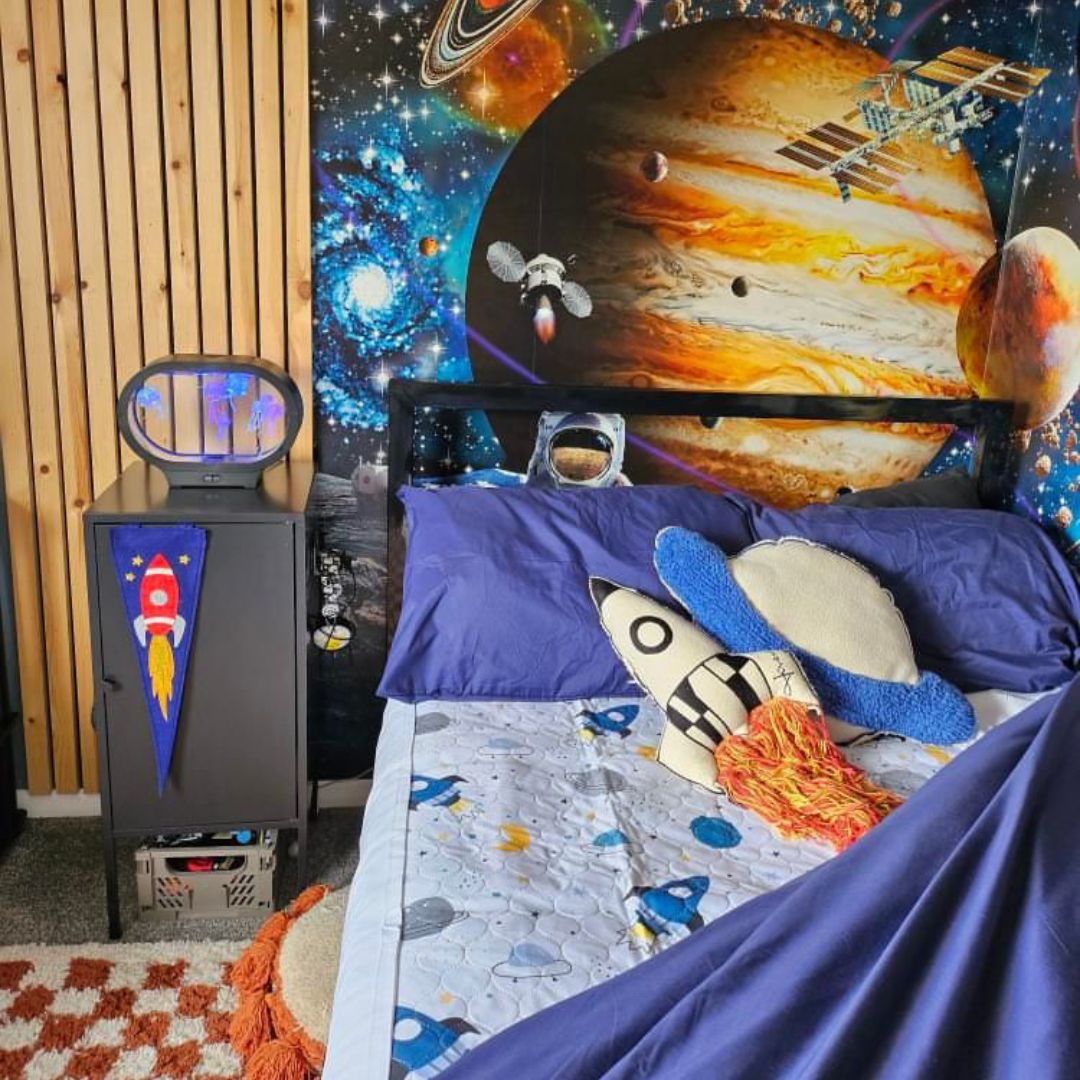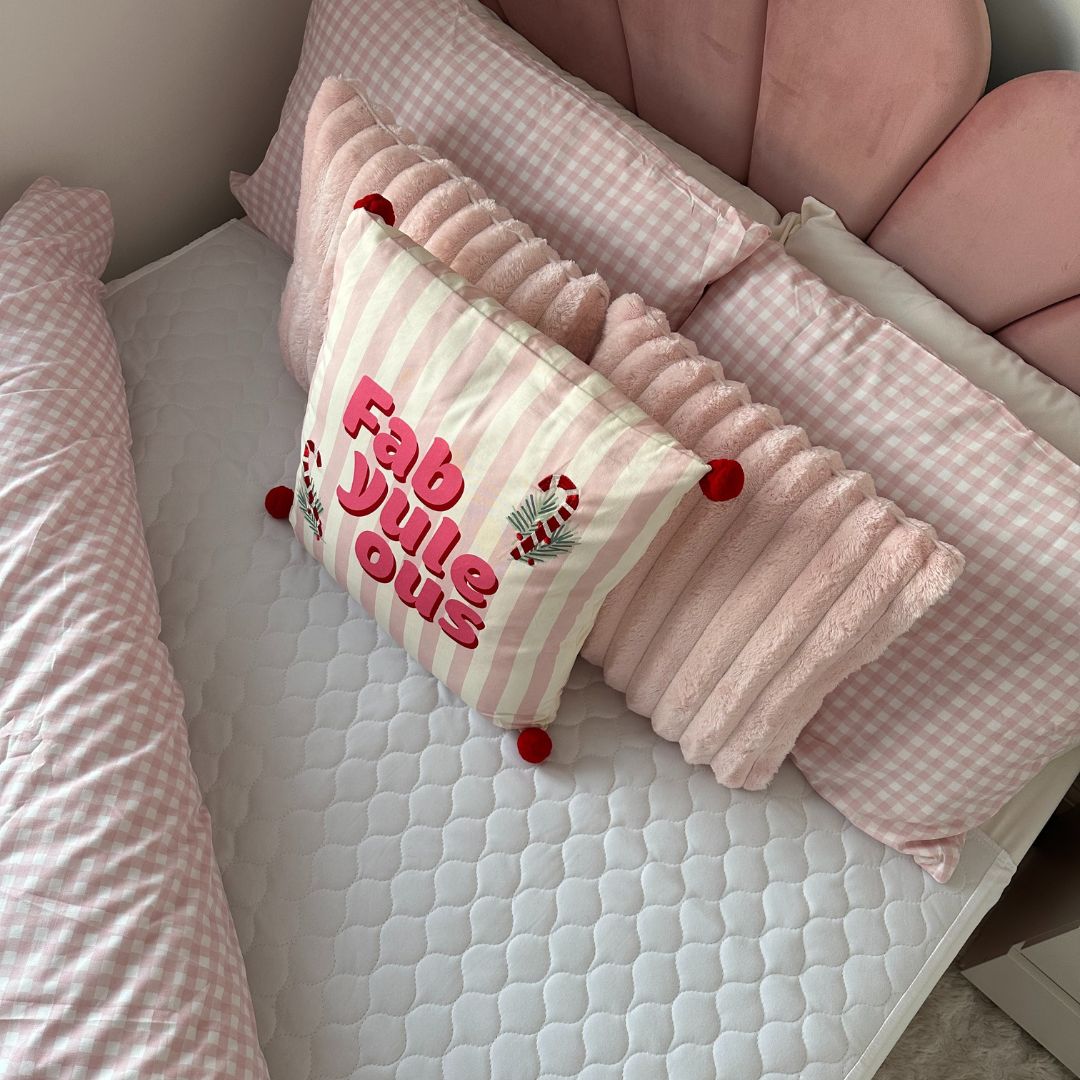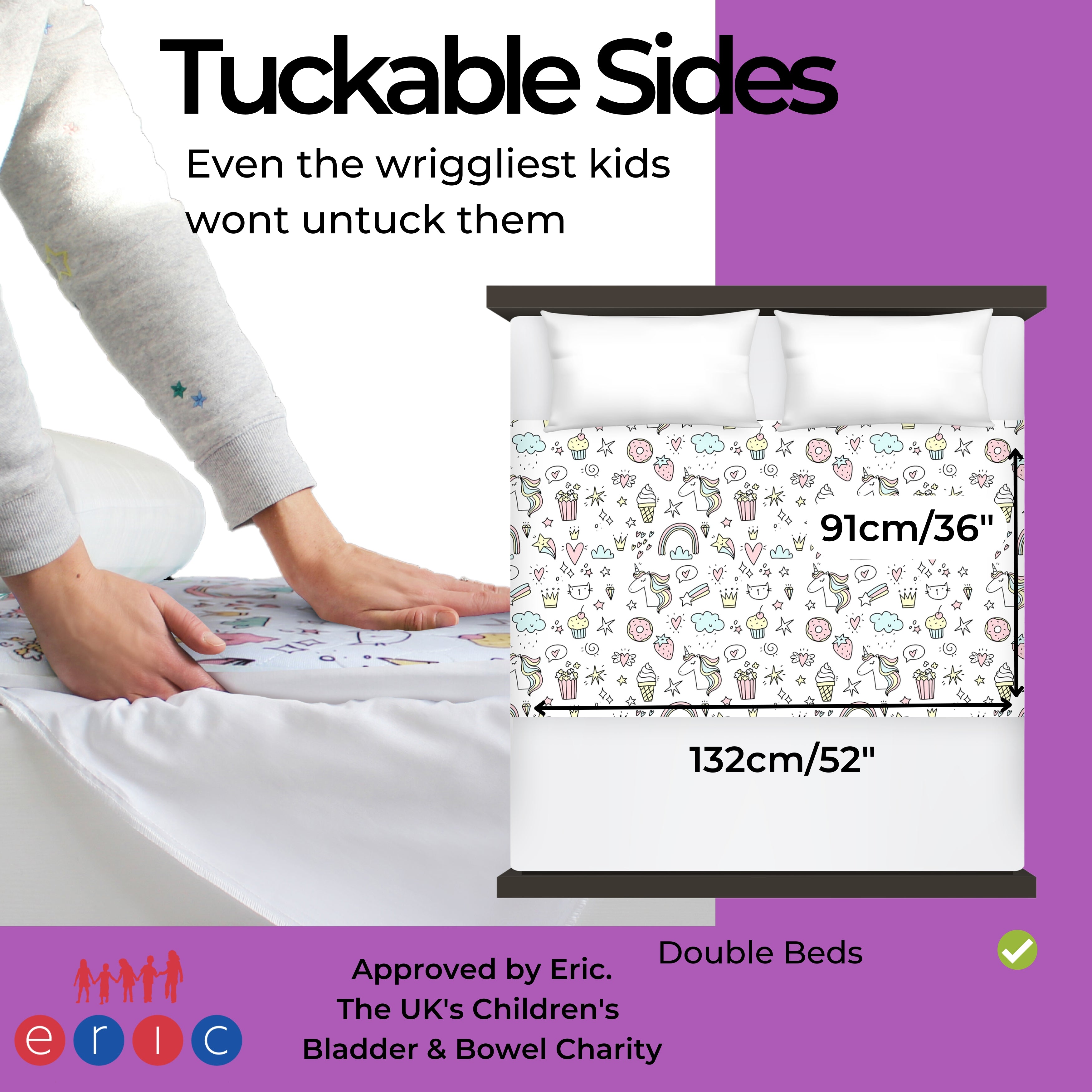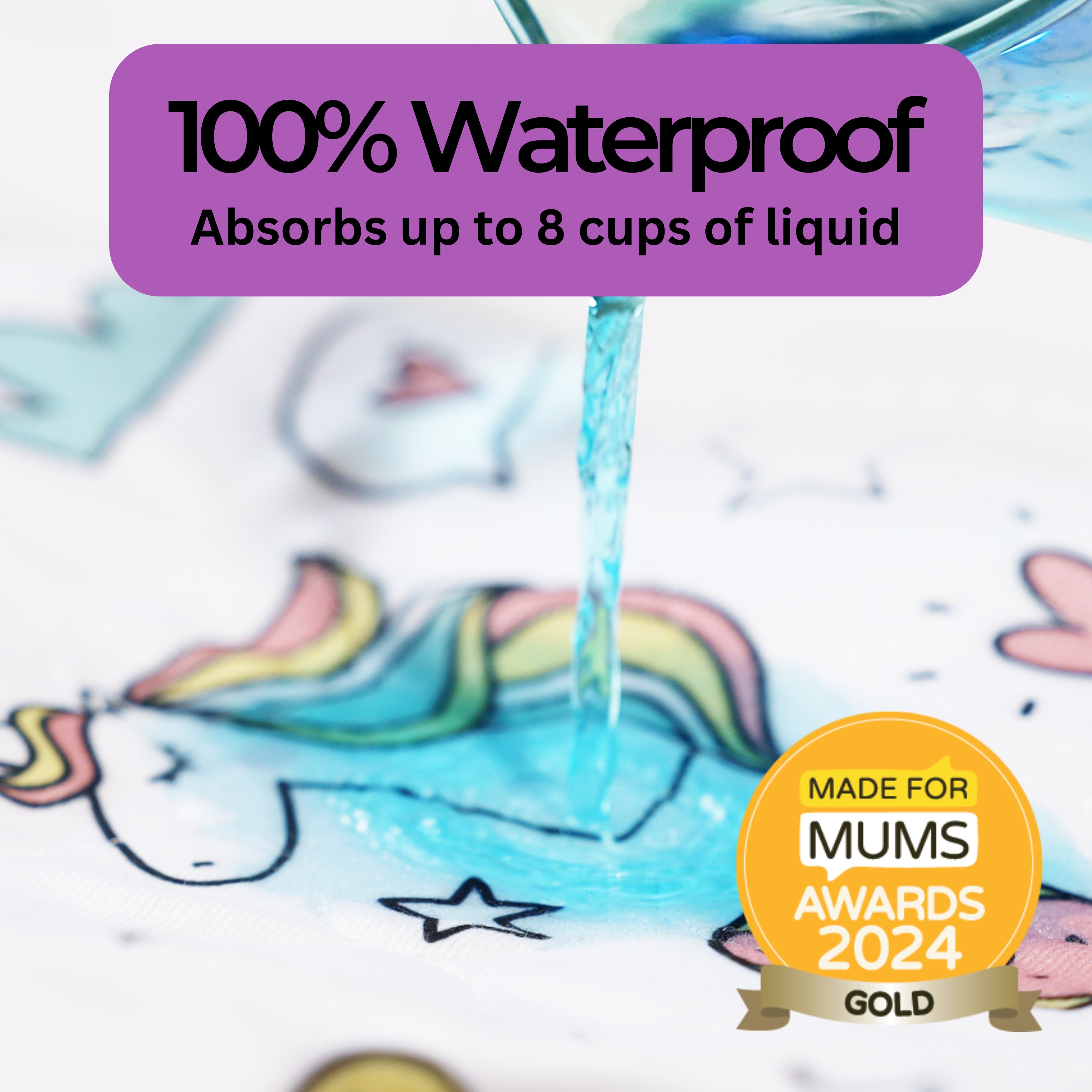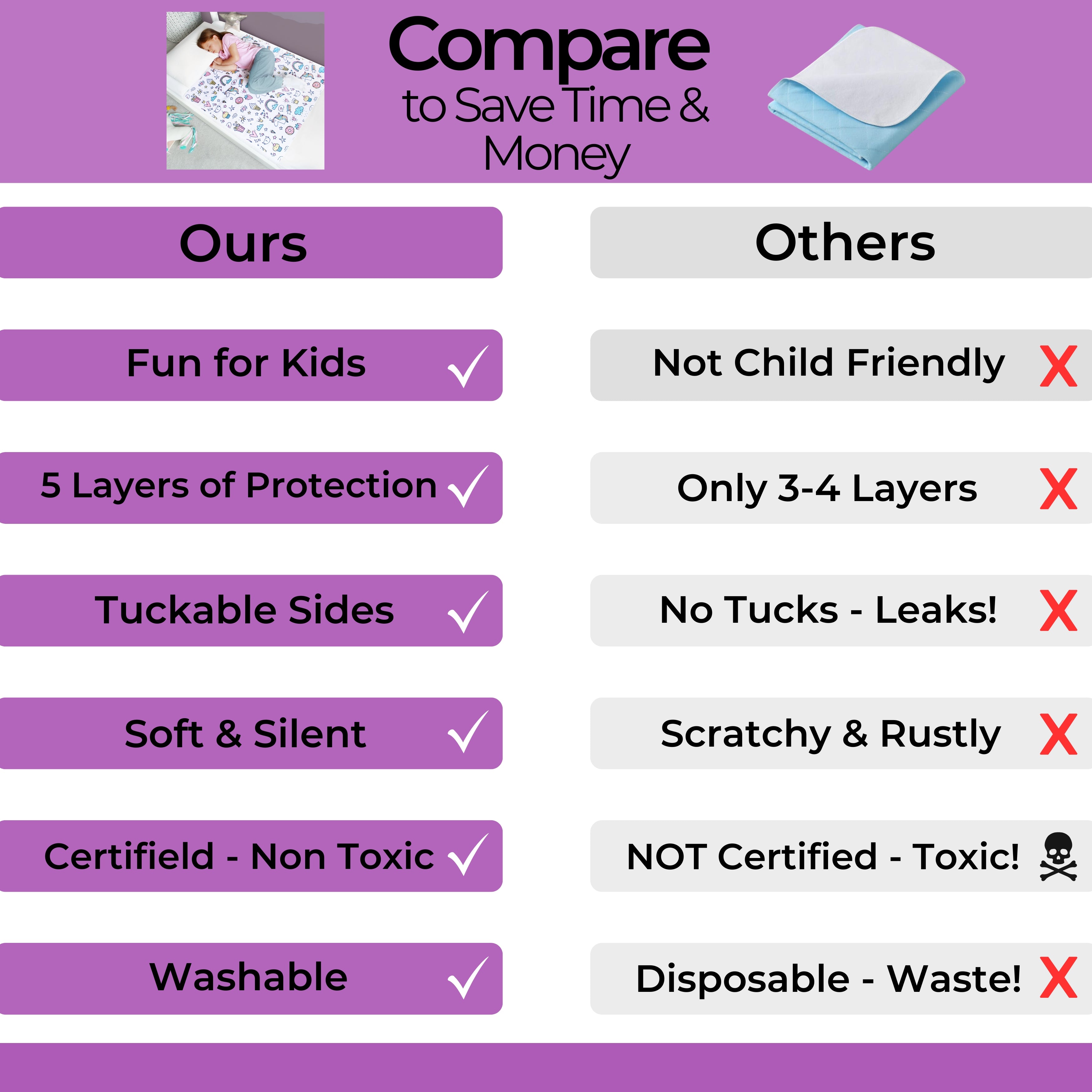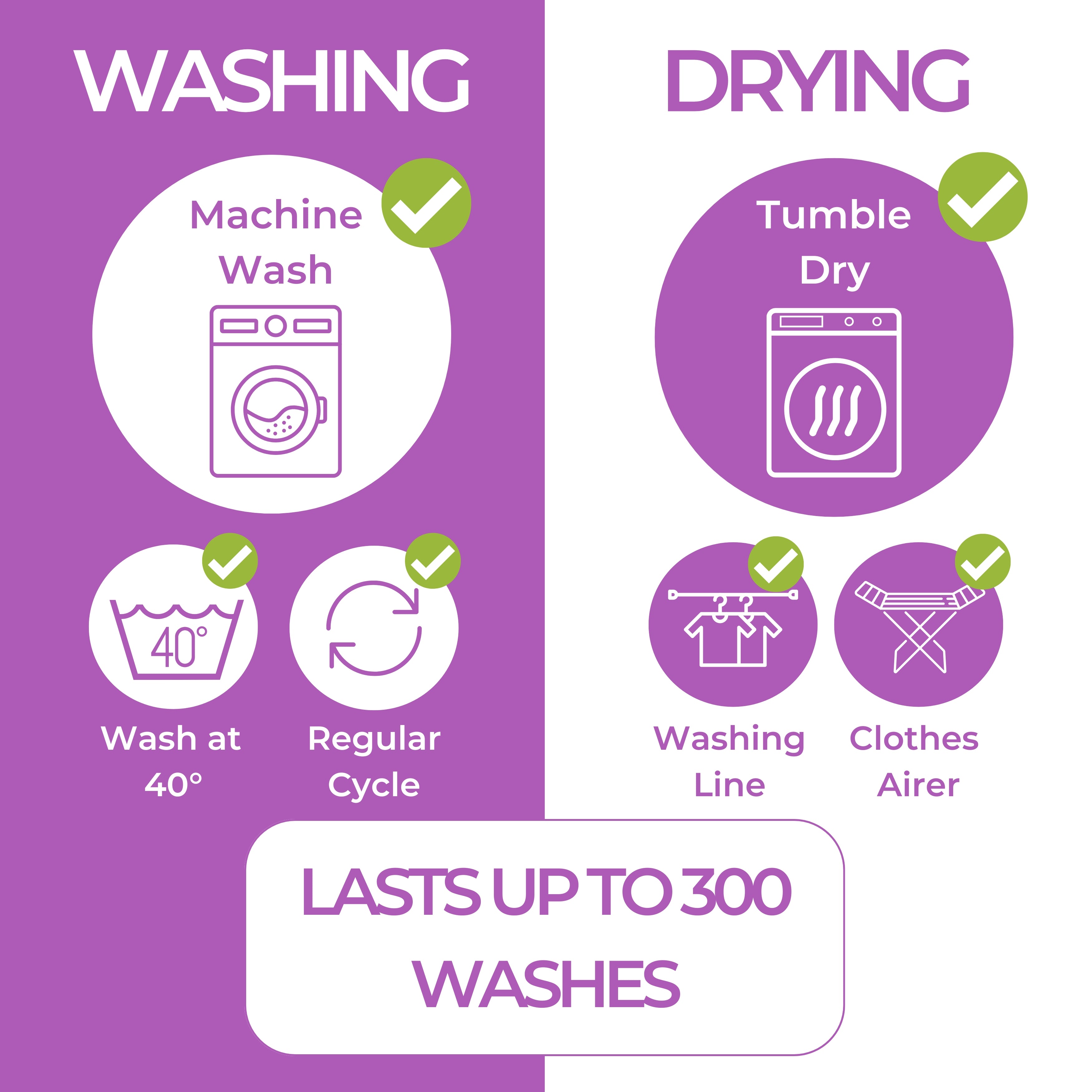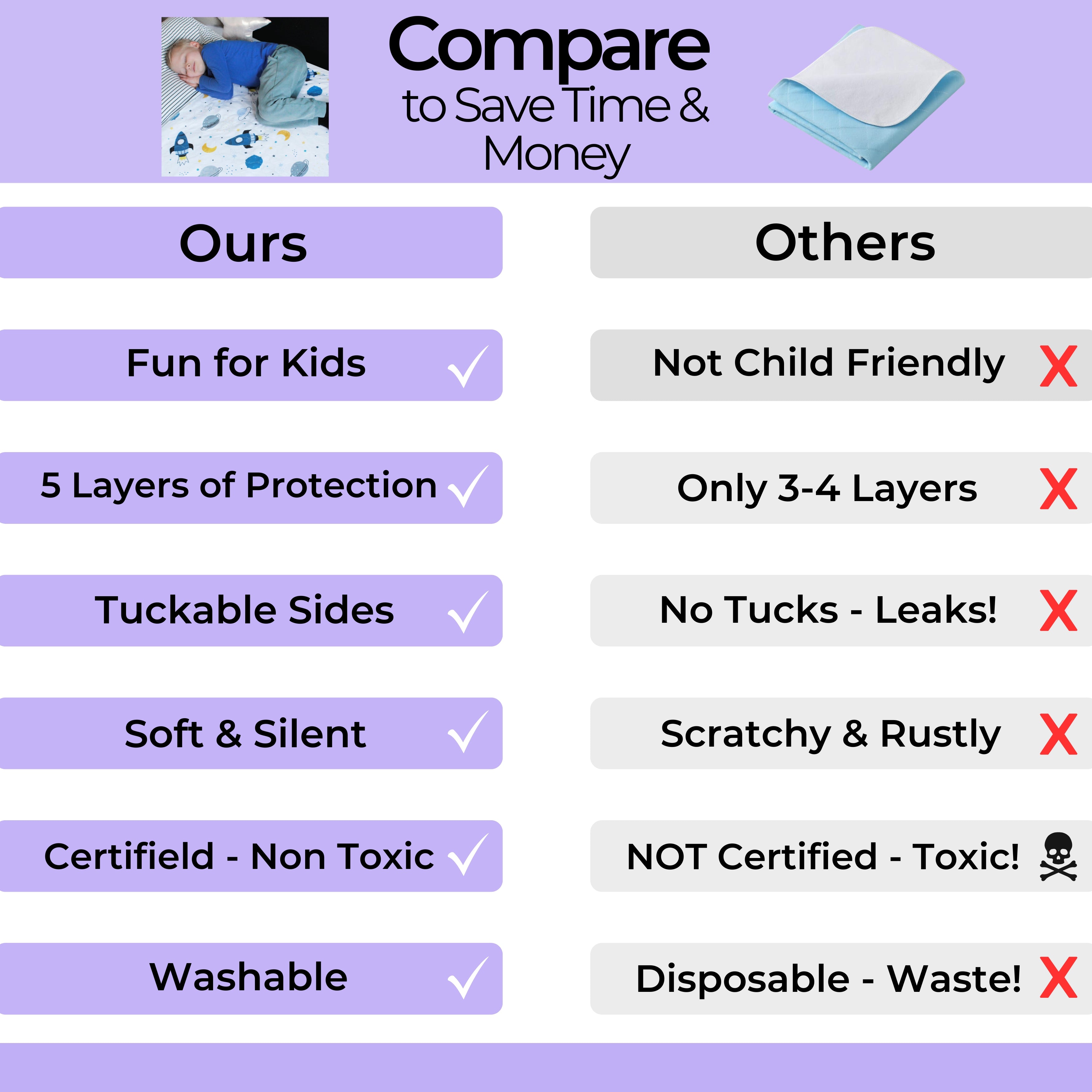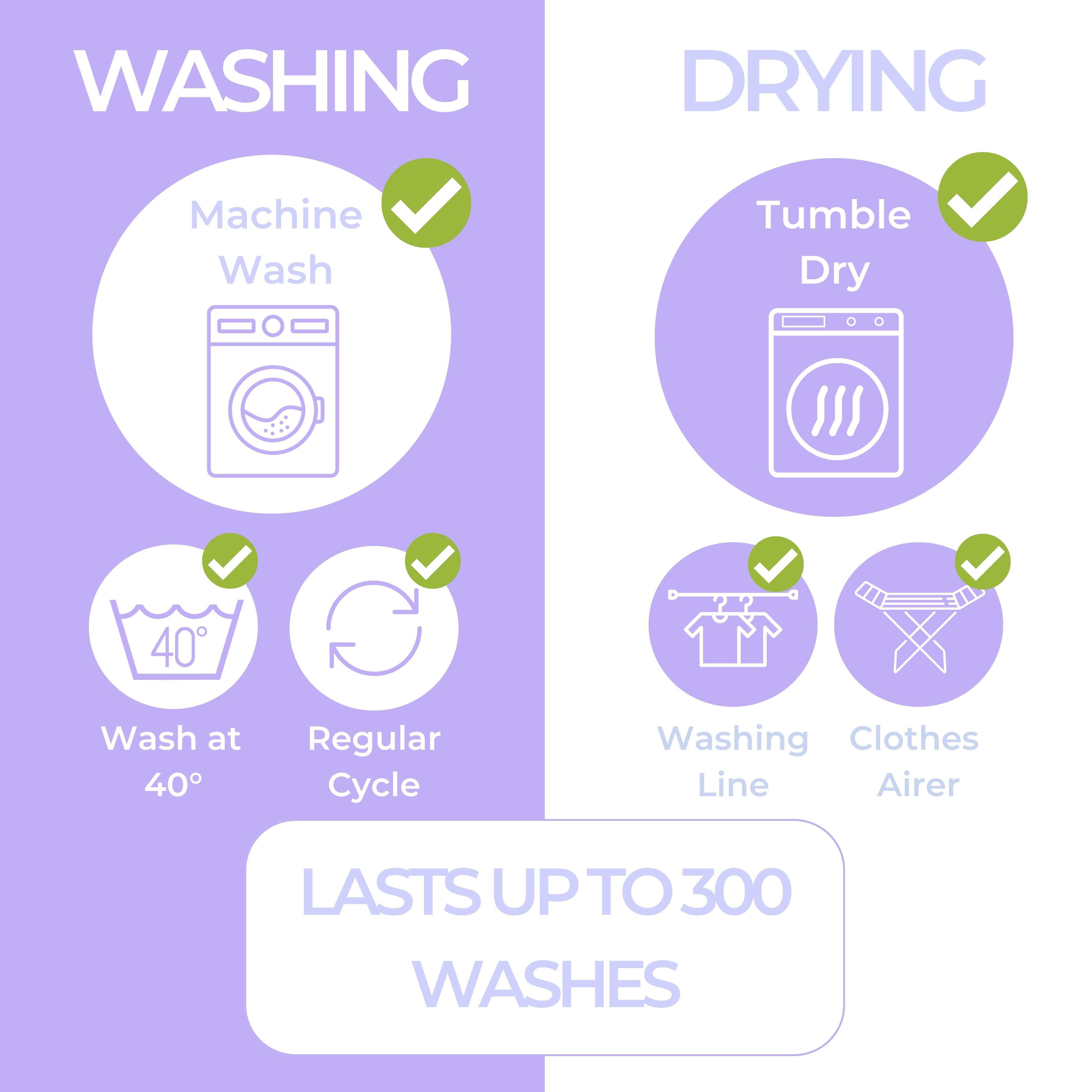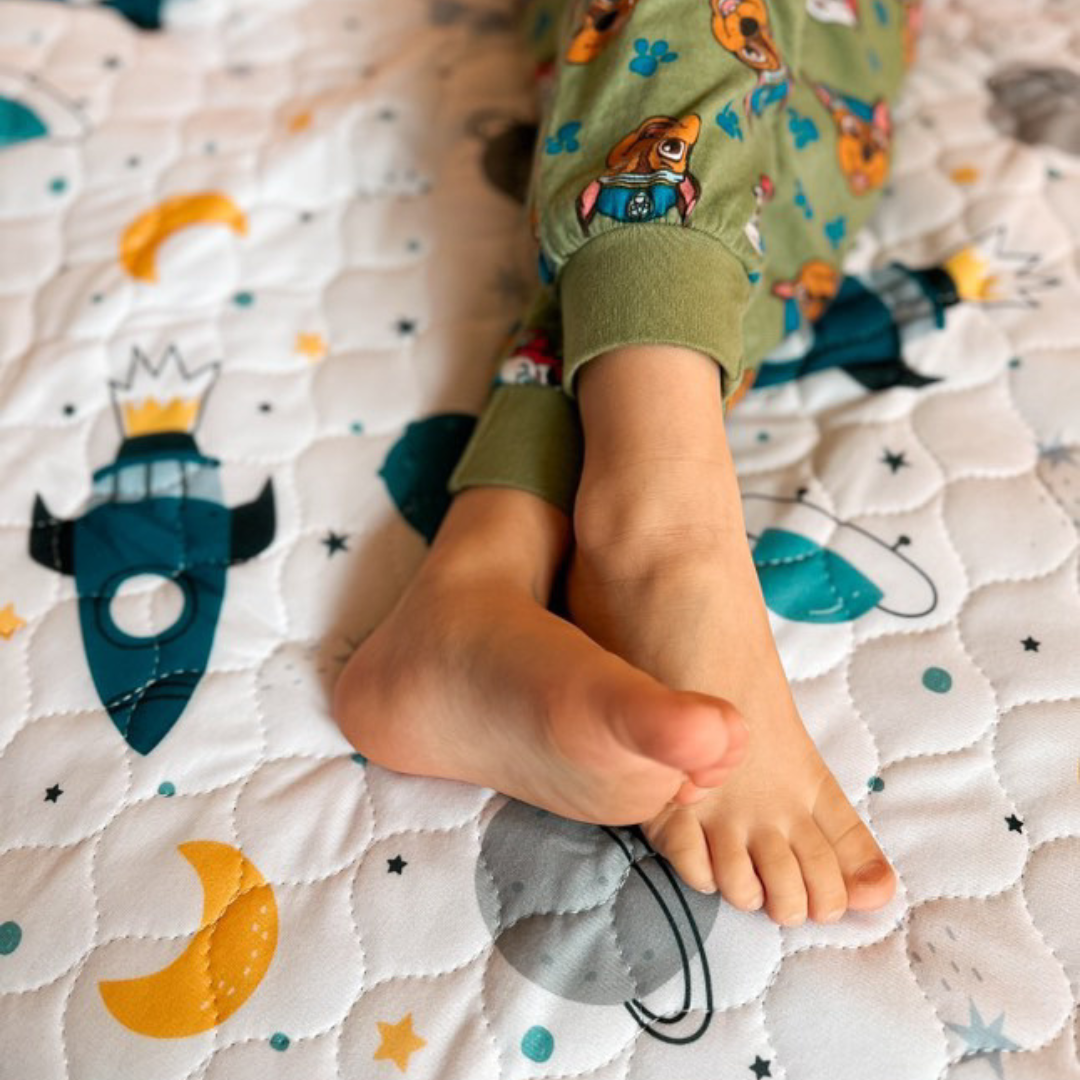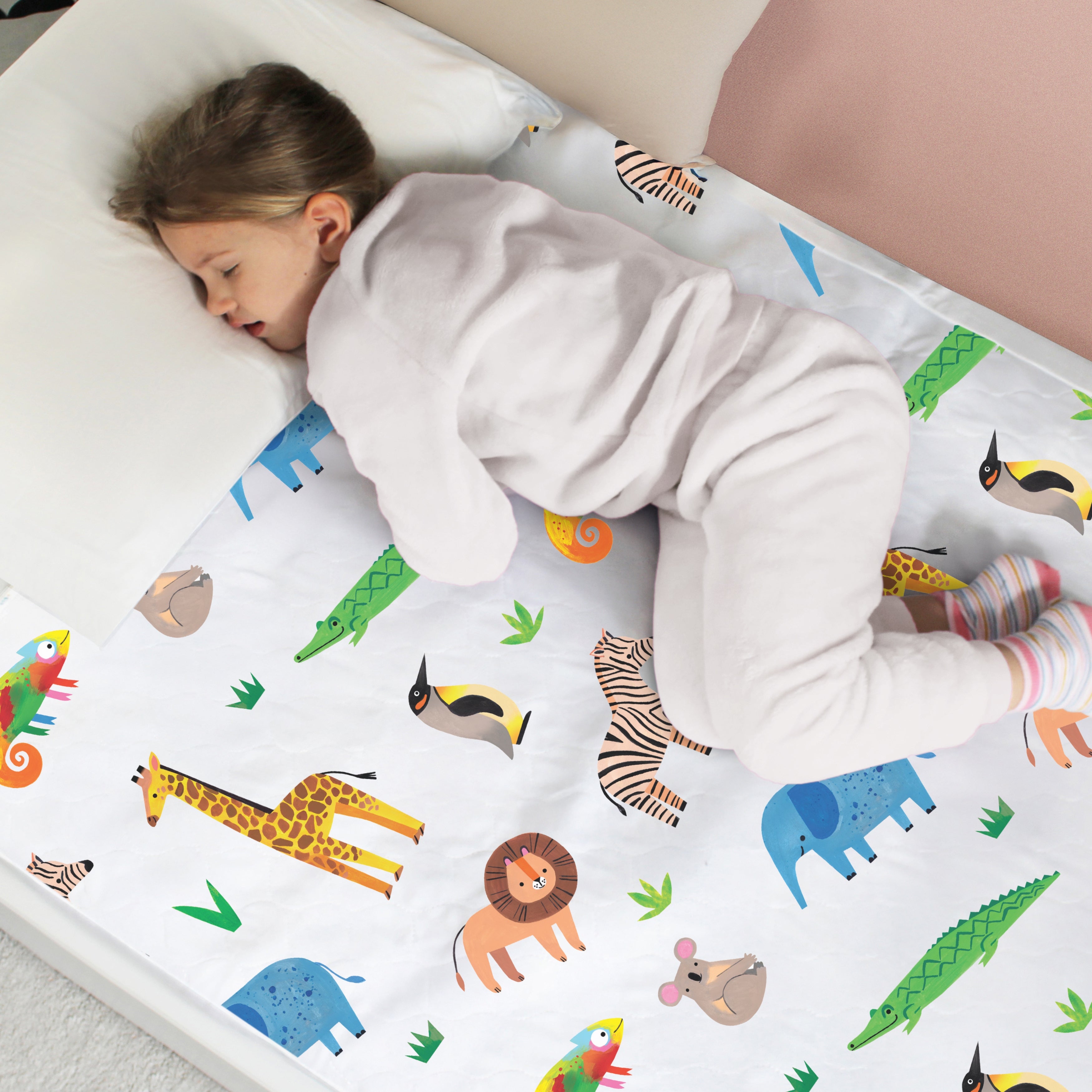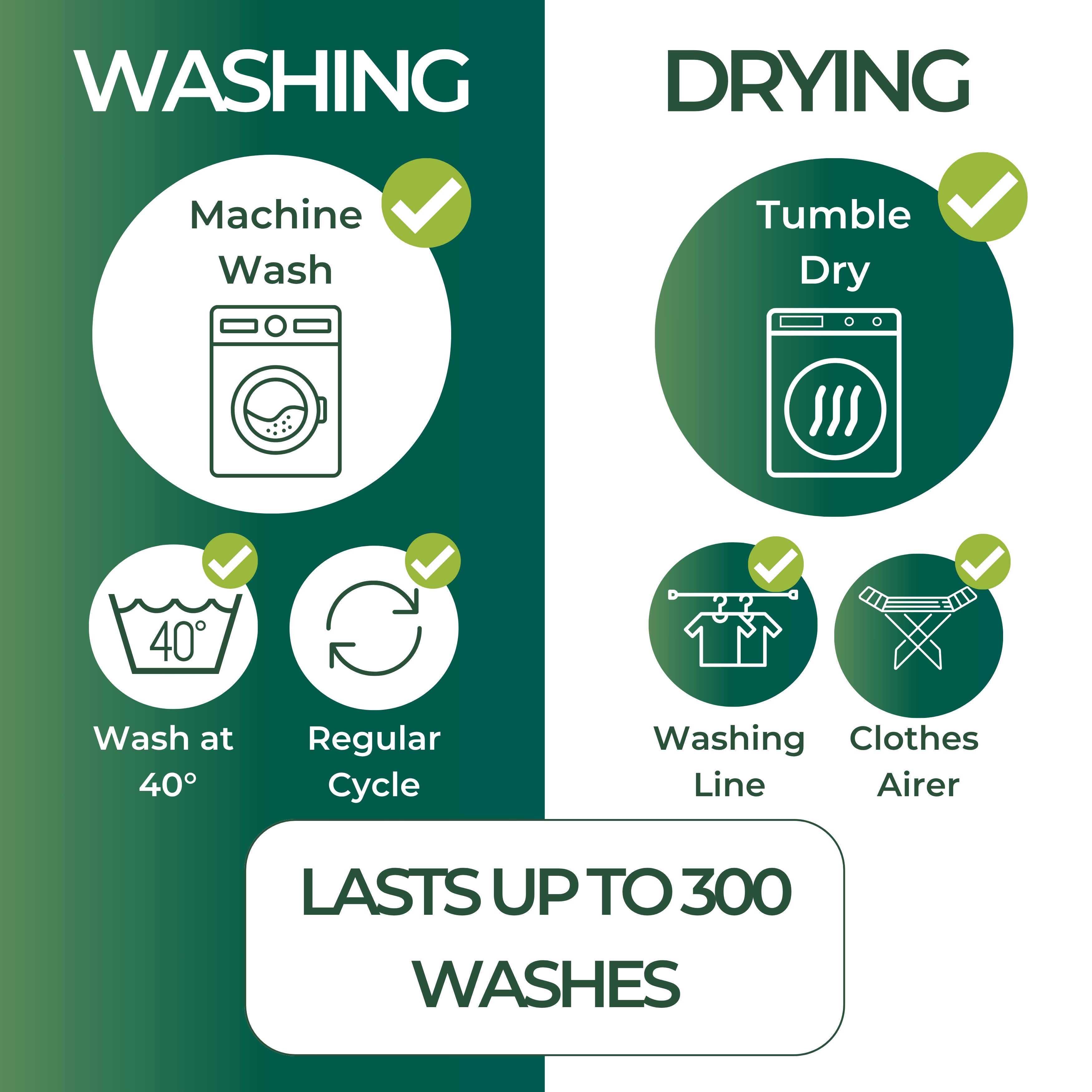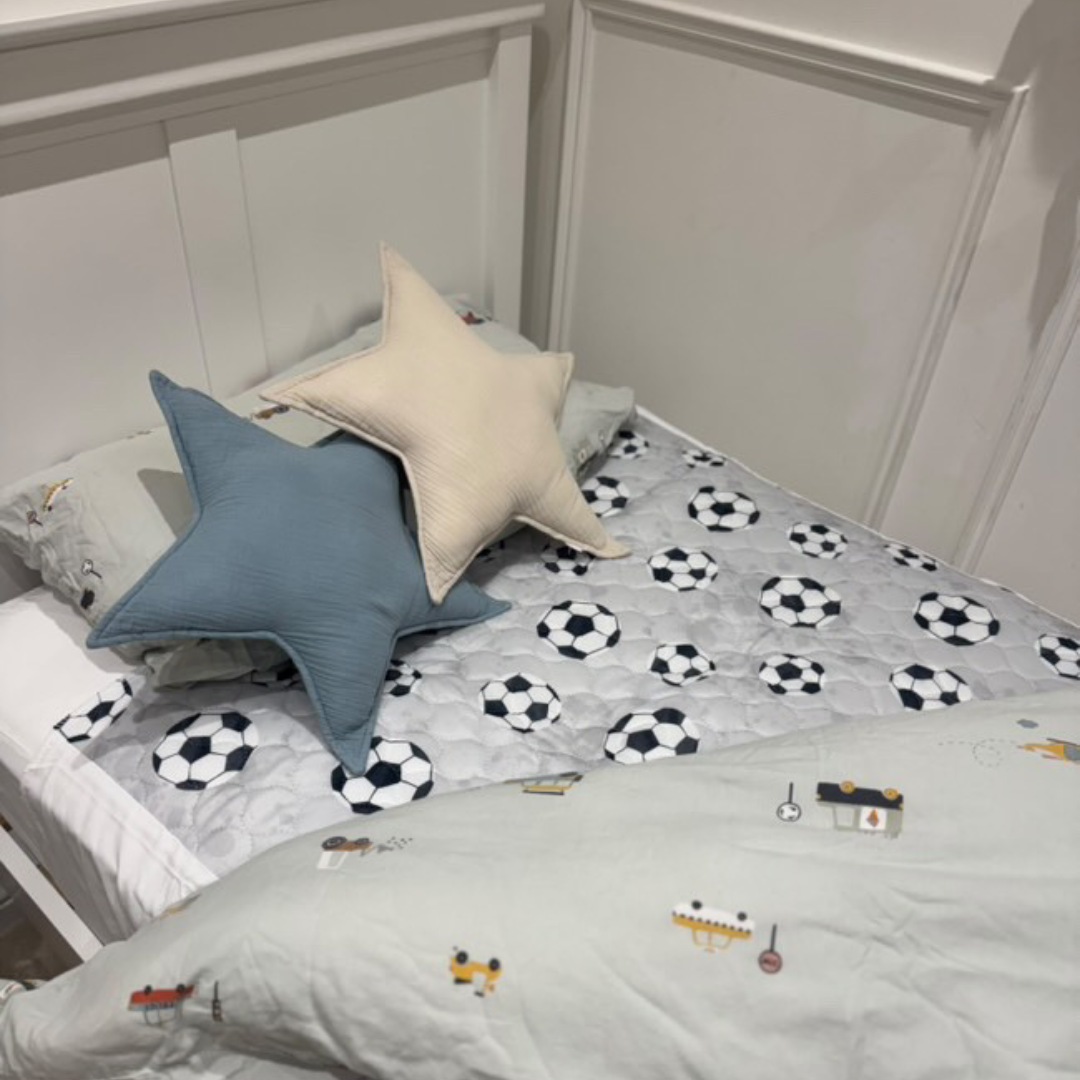At Hygge Sheets, we are passionate about understanding our customers and their experiences. We have spoken to people who have experienced bedwetting in childhood so we can truly understand how they felt and offer advice to other parents, teenagers, and children.
It’s our mission to make bedwetting a more openly discussed subject through education and awareness.
This is a real-life account of a girl who experienced bedwetting up to the age of 17.
Bedwetting and Mental Health
As long as I can remember, I wet the bed at night, mostly never waking up when it happened. Only now, as a 17-year-old, have I stopped. This has really affected me mentally over the years. I used to feel like there was something wrong with me, especially when my younger siblings were dry at night despite being younger than me. My mental health suffered as I felt like I wasn’t normal. I couldn’t go on school trips or sleepovers— bedwetting definitely held me back from doing a lot, not only as a child but as a teenager too.
"I used to always feel like there was something wrong with me, especially when my younger siblings were dry at night and they were younger."
Bedwetting and Relationships
One time, I finally had a boyfriend sleep over and had an accident. I was so upset and worried, so I pretended I had spilled a drink on him. My mum quickly switched mattresses with my younger sibling so that when my boyfriend came back in after changing, he didn’t notice the smell or the wetness. This really knocked my confidence and mental health. I had to undergo therapy to overcome past issues like this. The doctors were not very helpful at first, saying it was normal and that in some cases, children could still be wet at night into their late teens. I felt lonely at times. My mum sought additional support and reached out to bedwetting nurses who understood more about the issue.
The Investigation into Different Bedwetting Solutions
I tried using a bedwetting alarm, but as I never really woke up when I wet the bed, it didn’t work well. Instead, it would wake my mum, and by the time she got to me, I was already wet. I also tried medication, which initially helped reduce the amount I would wee at night, but the side effects made me sick and affected my stomach, so I had to stop.
When I turned 16, the doctor finally referred me to the continence nurses at the hospital, who have been amazing. They discovered my bladder was only holding 110ml of water, so we tried drinking charts and kept an input and output log to naturally stretch my bladder.
"When I turned 16, the doctor finally referred me to the continence nurses at the hospital, who have been amazing."
Because I was so nervous about wetting the bed, I started drinking less water, which caused my bladder to shrink. Without knowing it, I was making the situation worse. Since then, I have been on medication that has helped change my life. I no longer wet the bed every night, although I still have occasional accidents when I’m stressed or have had lots of fizzy drinks or juice.
Supportive Parents and Bedwetting
My mum was amazing—she never made me feel bad and always supported me. Unfortunately, my father and stepmum weren’t as understanding. They used to get mad about having to wash the sheets, which made me feel so stressed and uncomfortable that I eventually stopped visiting them. I think more support for children and parents dealing with bedwetting would help adults understand the condition better and be more supportive of children who struggle with it.
"I think more support for children and parents of children who bedwet would help adults understand more and be more supportive."
The Genetic Link to Bedwetting
My mum always told me that bedwetting ran in the family. Her brother was wet at night until his early teens, and her mum was, too. This was reassuring at first, but by the time I turned 14 and they had been dry at that age, I felt deflated and worried that I would wet the bed for the rest of my life.
Some doctors and nurses supported the idea of a genetic link and explained that bedwetting is related to a hormone in the brain that isn’t functioning properly, preventing me from waking up when my bladder was full. However, others dismissed my mum’s concerns, saying I would grow out of it and that I was either lazy or not drinking enough water. I definitely believe there is a genetic link, and it shouldn’t be dismissed, especially when people seek help for something that is both embarrassing and emotionally draining.
Reward Systems Didn't Help
My mum used to keep a box under my bed with clean bedwetting sheets and pyjamas to make nighttime accidents less disruptive. This helped me feel less bad about it. Reassuring children and teens that there is nothing wrong with them and that they will eventually become dry is essential. However, using charts and reward systems made me feel more pressure, as I was trying my best, and not getting a reward just made me feel even worse.
What Advice Would You Offer?
"Be kind, and never make the child or teen feel like it’s their fault."
On behalf of the Hygge Sheets family, thank you for the opportunity to share you story. I hope it helps others feel less alone.
Take care,
Catherine x

